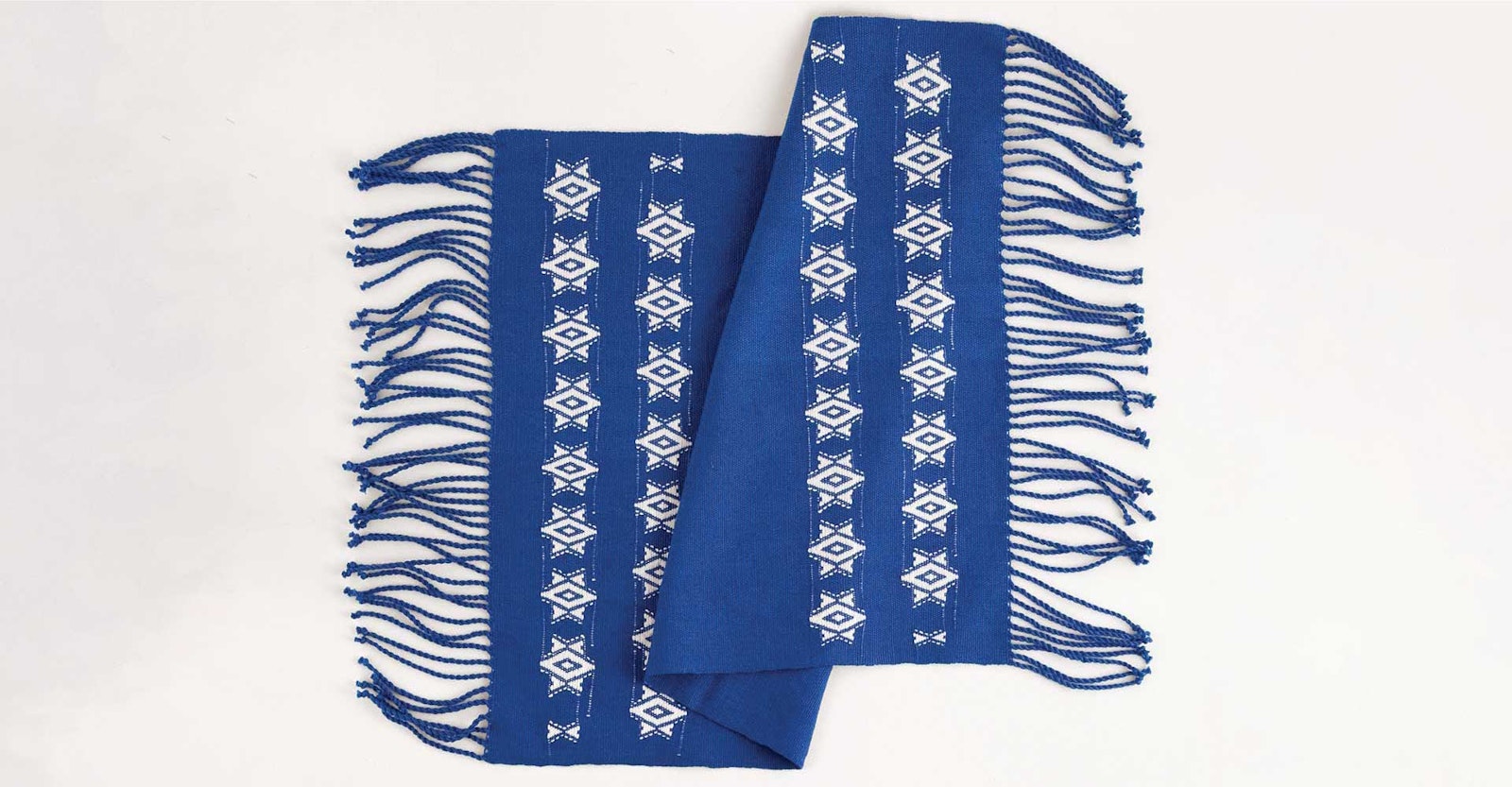Whether you shop on-line for holiday gifts for like to go to the mall, there are choices you can make that will bring cheer not only to the recipient of the gift but to the maker. Here are some tips from Anita Osterhaug for fair-trade shopping from Little Looms Holiday 2020 - Susan
As you read this holiday issue of Little Looms, you’re probably envisioning the fun of loved ones opening your lovingly crafted gifts or adorning your home with handmade decor. As you prepare for those happy times, may I suggest including some fair-trade gifts and holiday cheer in your plans? Not only does fair-trade buying benefit you, your loved ones, and the planet, it will also make the diverse holiday seasons merry and bright for artisans, makers, and growers and their families around the world.
Fair trade is a practice in which sellers in developed countries pay a fair price to producers in developing countries, helping them to earn a living wage with safe working conditions and sustainable production practices. The World Fair Trade Organization calls this “trade with concern for the social, economic and environmental well-being of marginalized small producers.” But buying fair trade helps you and your family, too. For example, small farmers who produce shade-grown coffee in the Amazon are helping to preserve the rain forest, which helps combat climate change. Weavers in the Andes are sustaining and reviving the textile techniques of their Incan and pre-Columbian ancestors, cultural treasure that could be lost to the world without fair-trade support. Artisans in Africa are recycling waste plastic, glass, and paper into gorgeous jewelry and baskets, providing them a livelihood and helping keep garbage out of the environment.

Handwoven table runner and tortilla basket, made by artisans at Mayan Hands. PHOTO COURTESY OF MAYAN HANDS
And then there’s the quality of fair-trade artisan products. That Costco bag of chocolate chips is fine when I make six dozen cookies for a bake sale, but for an evening indulgence, give me a square of varietal fair-trade chocolate every time. A microfleece sweatshirt from the department store is all right for yard work, but wearing a handwoven cashmere shawl from Nepal makes a special evening out even more special.
There are loads of places to find fair-trade products (see Resources for links to all of those described here). For textiles and woven goods, Weave a Real Peace offers a resource guide where you can find sources for everything from Guatemalan huipiles (blouses) and pine-needle baskets to exquisite silk ikat pieces from artisans of the Vietnamese and Laotian hill tribes. For a global selection of housewares and home decor, jewelry, accessories, and gift items, Ten Thousand Villages has both local stores and online shopping, and Give Back Goods supports small fair-trade producers and also carries a selection of products made from recycled waste. To find what stores around you carry fair-trade food and fashion products, check out the Fair Trade Certified website. (To be certified, fair-trade products must be produced according to rigorous standards that protect the well-being of farmers, workers, fishermen, and the environment.)

Skeins of hand-dyed cotton yarns that will be used by the artisans at Sabahar, a fair-trade textile company in Ethiopia. PHOTO COURTESY OF SABAHAR
Three of my personal favorite fair-trade sources are the Center for Traditional Textiles of Cusco (CTTC), which supports and sells products from 10 weaving communities in the Peruvian Andes; Mayan Hands, which supports indigenous artisans in Guatemala; and Camano Island Coffee, which sells organic, shade-grown fair-trade coffee and donates part of its profits to Food 4 Farmers and Agros, a program that helps indigenous people to own their own land. And the indulgent fair-trade chocolate? There’s a nice selection in the organic section at my local grocery store.
As the holiday season draws near, whatever your holiday of heritage or choice, I hope you’ll brighten your life and the lives of makers and producers around the world with some fair-trade gifting. And for people who have everything or just don’t want more stuff, Alternative Gifts International is a great place to make donations in their name. What better gift for a schoolteacher than to donate to early childhood education in Haiti. For a nurse, you can help fund nursing education in Vietnam, and for a veteran, you can help provide housing for homeless veterans in the United States.
As makers, we have a special connection to makers in our community and around the world. However you choose to honor that connection this holiday season, I wish you fair thoughts and happy hours.

One of Sabahar’s spinners handspins silk yarn directly from the cocoon. PHOTO COURTESY OF SABAHAR
Some Fair Trade Resources
Alternative Gifts International, alternativegifts.org
Camano Island Coffee, camanoislandcoffee.com
Center for Traditional Textiles of Cusco (CTTC), www.textilescusco.org
Give Back Goods, www.givebackgoods.com
Mayan Hands, www.mayanhands.org
Multicolores, www.multicolores.org
Sabahar, www.sabahar.com
Ten Thousand Villages, www.tenthousandvillages.com
Weave a Real Peace (WARP) resource guide, https://weavearealpeace.org/community/artisan-direct-connect/#retail
Originally published online 6/30/2022; updated 12/3/2024

